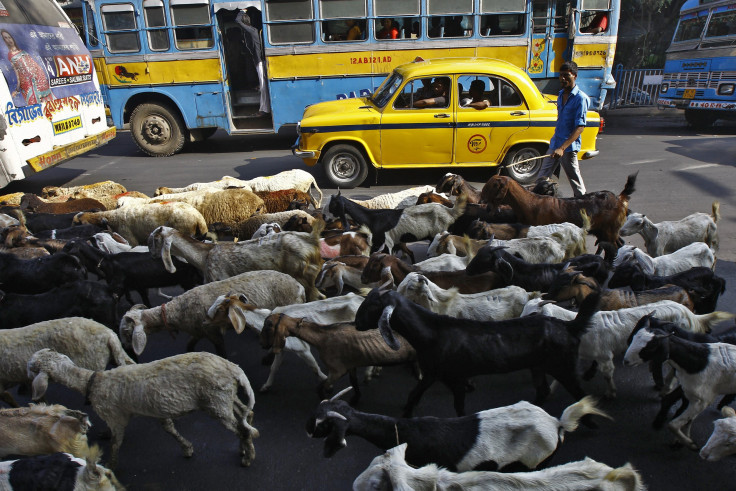SoftBank-Backed Indian Rideshare Provider Ola Cabs In Talks To Buy Smaller Rival TaxiForSure

SoftBank Corp.-backed ANI Technologies, which runs India’s largest rideshare company Ola Cabs, is in talks to purchase smaller rival TaxiForSure as it moves to fend off competition from Uber Technologies Inc., a person with direct knowledge of the talks told International Business Times.
The person declined to provide details as the talks were private and added that no deal had been finalized yet. Ola Cabs' spokesperson couldn’t be immediately reached over the phone and an email to the company hadn’t elicited a response at the time of writing. TaxiForSure declined to comment, in an email to IBTimes. Ola could be preparing to close a deal priced between $200 million and $250 million in cash and stock, Times of India newspaper reported Thursday, citing unnamed sources.
India’s smartphone explosion has created a ripe market across sectors for mobile app-based services, including online retail, booking tables at restaurants, mobile payments and ridesharing, drawing serious interest from local as well as multinational investors.
Japan’s SoftBank, which has invested in Ola Cabs, is emerging as a key backer of the rideshare industry across Asia, which is perhaps home to the most promising set of markets that Uber wants to expand into, including China, India, Indonesia, Malaysia and Vietnam.
With TaxiForSure, Ola would consolidate its position in India and have a better chance of turning a profit for its investors in the long haul in a business that depends on rapidly building up a network of drivers and providing consistent service regardless of location. Ola also faces the same challenges that ridesharing has faced across the globe, from concerns over passengers’ safety to retaliation from traditional taxi drivers, who say cab-sharing app companies are hurting their livelihood.
© Copyright IBTimes 2024. All rights reserved.






















